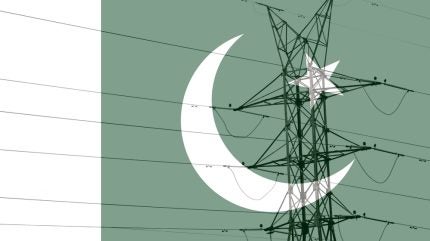
At last week’s International Monetary Fund (IMF) Annual Meetings, Pakistan’s finance minister Muhammad Aurangzeb requested $1bn in funding from the IMF’s Resilience and Sustainability Trust (RST) to help mitigate the country’s climate risks and accelerate its energy transition. Established in 2022, the RST offers vulnerable low- and middle-income countries long-term concessional cash for climate-related spending.
Pakistan’s power sector circular debt, driven by inefficiencies in the power distribution network, crossed Rs2.66tn ($9.5bn) in May, according to a debt report released by the government’s power division. Meanwhile, citizens have suffered significant and frequent power outages in recent years, leaving millions without electricity.
The government’s faulty capacity payment contracts with independent power producers (IPPs) have come to light as the primary source of these challenges. Interest rates borne from private IPPs have not only worsened the debt crisis but spiked consumer tariffs, making electricity unaffordable.
In light of Aurangzeb’s request, coupled with multiple IPPs terminating their contracts with the government, the South Asian nation is now likely to announce significant reforms.
“These IPP payments had a detrimental effect on the overall quality of life for our citizens,” Awais Laghari, Pakistan’s minister for energy’s power division, tells Power Technology. “It is imperative that necessary steps are taken to resolve the issue.”
Roadmap of intended reforms
“There are plans to encourage IPPs to become more efficient through optimisation of their cost structure,” Laghari says.
Without specifying the plans, he claims that the power division is currently evaluating options “through which the fiscal burden shared by the consumer, whether through taxes or debt repayments, can be optimised through various interventions that improves household economics and consumption at the same time”.
Laghari says that there are also plans to “unbundle electricity” and create a competitive market for energy, citing the recent introduction of an independent system and market operator (ISMO) as a step in this direction.
“This will ensure that a B2B [business-to-business] market for electricity can develop, which can eventually evolve into a B2B2C [business-to-business-to-consumer] market thereby providing greater options for consumers and lower prices through a competitive process,” he says.
The minister adds that the role of renewables in reforming the country’s power market will be imperative, “given their price advantage”. He believes that their ability to generate cheap electricity will “always put them ahead in any competitive market regime, making them critical to the success of the market.”
Following the IMF meetings, Laghari says that the government plans to “move forward actively” with the privatisation of electricity distribution companies and that “necessary improvements in governance are already underway”.
He believes that privatisation can enhance the efficiency of these companies, allowing them to remain a key player in the power market, which in turn will result in more affordable prices for consumers.
“Similarly, we continue to focus on investment in transmission to remove constraints so that lower cost electricity generated in the South can be moved across the country and overall consumer tariff can be reduced.”
About the author: Owais Rawda is a regulatory policy researcher that has written about the energy and technology industries.



